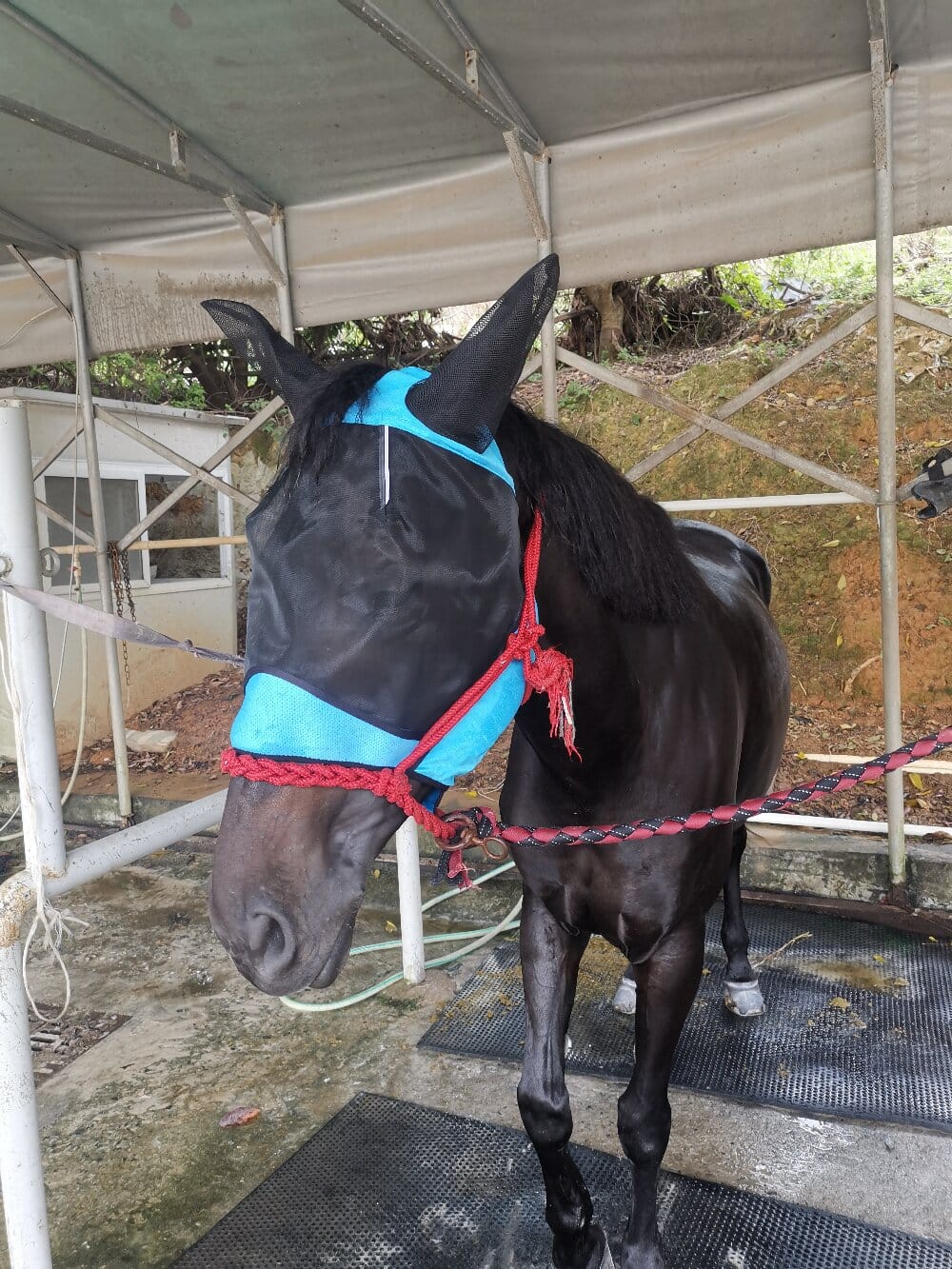A horse fly mask is more than just a simple accessory—it’s a vital piece of equipment for protecting your equine companion from pesky insects and harmful UV rays. Whether you’re a seasoned horse owner or new to the world of equine care, understanding the benefits of these masks can make a world of difference in your horse’s comfort and health. In this case study, we’ll explore real-life scenarios where fly masks proved indispensable, along with practical tips for choosing the right one.
The Problem: Flies and Sun Exposure
Horses are particularly vulnerable to flies, gnats, and other biting insects, especially during warmer months. These pests not only cause irritation but can also lead to infections or allergic reactions. Additionally, prolonged sun exposure can damage sensitive areas around the eyes and muzzle. Without proper protection, horses may develop conditions like conjunctivitis or even sunburn.
Case Study: How a Fly Mask Saved Max’s Summer
Meet Max, a 12-year-old gelding who spent his summers swatting flies with his tail and rubbing his face against fences to relieve itching. His owner, Sarah, noticed his discomfort and decided to try a horse fly mask with UV protection. Within days, Max’s agitation decreased, and his skin healed from minor irritations. Sarah also observed that he was more relaxed during rides, as the mask prevented distractions from buzzing insects.
- Reduced Stress: Max stopped constantly shaking his head or stomping his feet.
- Improved Health: No more eye discharge or skin sores from excessive scratching.
- Better Performance: With fewer distractions, Max became more focused during training sessions.
Choosing the Right Fly Mask for Your Horse
Not all fly masks are created equal. Here’s what to consider when selecting one:
- Material: Look for breathable, lightweight fabrics like mesh to prevent overheating.
- UV Protection: Ensure the mask blocks harmful rays, especially for horses with light-colored faces.
- Fit: A snug but comfortable fit prevents slipping and ensures full coverage.
- Durability: Reinforced stitching and adjustable straps extend the mask’s lifespan.
Common Misconceptions About Fly Masks
Some horse owners hesitate to use fly masks, fearing they might restrict vision or cause discomfort. However, modern designs are tailored for equine anatomy, allowing clear visibility and airflow. Others worry about masks getting dirty quickly, but most are machine-washable for easy maintenance.
Beyond Fly Protection: Additional Benefits
A horse fly mask does more than shield against insects. It also:
- Prevents dust and debris from irritating the eyes during windy days.
- Reduces the risk of scratches or injuries from aggressive rubbing.
- Helps horses with allergies or sensitive skin avoid flare-ups.
Final Thoughts: A Small Investment for Big Rewards
As we’ve seen in Max’s case, a fly mask can dramatically improve a horse’s quality of life. Whether your equine friend battles relentless flies or suffers from sun sensitivity, this simple accessory offers a practical solution. By investing in a high-quality mask, you’re not just preventing discomfort—you’re promoting long-term health and happiness for your horse.

